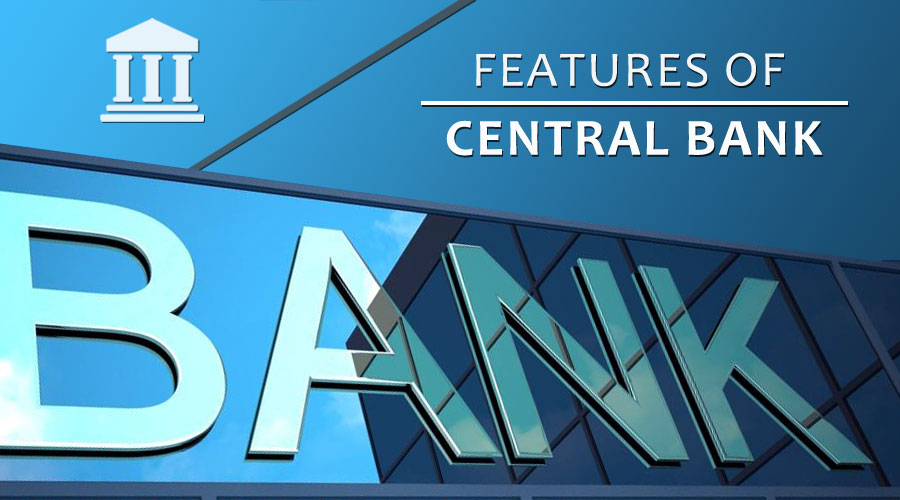What is Central Bank
What is Central Bank is The leader and guardian of the money market of any country is the central bank of the country. A Central is a bank whose essential duty is to maintain stability of the monetary standard. Central bank of any country control and supervises the banking system of that country. The 1st central bank o f the world is the Bank of England which was established 1609. Later on other European central banks were established.
Importance of Central Banks
Central bank for any country is very important in modem times, Central banks controls the economy of any country. Central banks acts as the banker of the government, Keeps deposit of the government’s funds print monetary notes on behalf of the government, supervises the banking system and money market controls inflation and banking system keeps reserves of the foreign currencies advises the government about monetary policy, appraises and monitors the economic and trends of economic variables. Thus the central bank is the guardian of the economy of any country. 
Functions of Central Bank
Central bank of any country performs a numbers of functions and manage the economy of that country .Some of the functions of a central bank are as follow:
Exclusive activities of a Central Bank: Central bank of any country is assigned a number of unique activities to perform for the sate and economy. Currency printing preservation of for currency, and maintenance of standard of currency, etc. are some of the unique assignment of the central bank.
- Bank and agency of the government: As a bank central bank keeps deposit of the money of the state or government, Central bank also collects taxes and other dues from the public payable to the government.
- Other activities: Other activities include fund preservation and accounts maintenance fund acceptance and transfer money truncation extension of credit to the government. maintaining relation with for foreign government , Preparation and maintenance of economic statistics, Researching the trend of economy and advising to the government.
- Supervising the banking system: Central bank is the leader of the market and also banker of other banks. All commercial banks are required to be the member of the Schedule of the central bank. Central bank helps the banking system by permitting formation of new banks accounts maintenance and provision of information. In this way, Central banks central bank control and supervises the function of the banking system.
- Extension of Credit: Central bank extends credit to the banking system. The commercial banks get refinance from the central banks and central bank is called Lender of the Last Resort.
- Control of credit: Central bank controls the credit in the economy. Credit is created by the commercial banks Excessive credit is detrimental for any economy. Central banks are assigned to monitor and control the credit in the economy.
- Research on the economy and economic variables: Every central banks usually maintains separate cell to research and monitor the different economic variables and the economics of the country.
- Advisor to the government: Central banks advisor the government about the position of the money market and the policies to be framed to regulate the monetary section of the economy.
- Other activities: Central banks is usually assigned or initiates some special activities like efforts for agricultural development. Industrial development cooperatives credit, etc.
Importance of Credit in the Economy
Lending of money is usually known as credit. Sale with permitted delayed payment is also known as credit is very important in modern economy. A major share of modern business transaction is on credit. Faith is the base of credit. Seller bank extends credit on the credibility of the borrower. Financial solvency & repayment behavior is important in credit edit extension. Credit is a normal practice in any economy now a day. Credit contributes to the economic development of any nation, Savings surplus and saving deficit units exist in any economy . Credit brings equilibrium. In crisis government also takes loan and spends in economic activities. This removes depression in any economy. The usually benefits of credit are as follows.
- Expansion of Economy activities: Credit extends economy activities. The Borrower of funds invests the borrower money in production or business. This enhances economic activities.
- Remedy to financial crisis: Credit removes the financial crisis in the economy. During deflation recession or depression money circulation reduces in the economy. Depression or stagnation is known ads diseases of the economy .Credit or extended money supply or circulation of money and removes the financial crisis of the economy.
- Acceleration of economy development: Credit Accelerates economic development. Credit goes to investment and investment contributes to value creation or enhanced production. Thus credit accelerates economic development.
- Acceleration of transactions: Credit makes transaction multiplied and easier. Idle fund is invested by the borrower or credit taker. Consequently credit increases transactions in the economy.